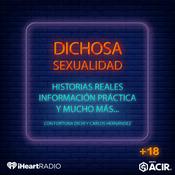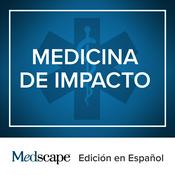471 episodios
- Before the Friday night lights and before the season even begins, there's one appointment that can determine athletic eligibility: the pre-participation sports physical. For pediatricians, it's often treated like a checkbox but in reality, it's a powerful clinical moment. Sometimes it is the one chance to catch something that can change a life. In this episode, we explore how to turn the pre-participation physical from paperwork into prevention. We'll break down what really matters in the sports physical, what red flags to watch for and how to use this visit to protect young athletes and support families.
Kristina Wilson, MD, and Nate Howel, MD, join us for this episode. Dr. Wilson is the Medical Director of the Sports Medicine Center at Children's Hospital Colorado and an Associate Professor at the University of Colorado School of Medicine. Dr. Howell specializes in primary care sports medicine and is also an Assistant Professor.
Some highlights from this episode include:
Current guidelines and recommendations for the sports pre-participation physical
Why history matters during this exam
How to handle the same day "I need this form signed now" visit
How to best conduct this during a routine checkup
For more information on Children's Colorado, visit: childrenscolorado.org. - GLP-1 medications have become an important part of adult obesity treatment and are now increasingly relevant in pediatric care. As new approvals emerge and clinical guidance continues to evolve, pediatricians are being asked to consider when, and for whom, these therapies may be appropriate. In this episode, we review the current evidence, discuss clinical considerations and examine the evolving role of GLP-1 medications in child and adolescents.
Megan Kelsey, MD, is the medical director of both lifestyle medicine and adolescent bariatric surgery. Jaime Moore, MD, specializes in pediatric nutrition and obesity medicine. Both Drs. Moore and Kelsey are on the faculty here at the University of Colorado School of Medicine.
Some highlights from this episode include:
How GLP-1s are changing lives for kids with obesity
Learning how they work and are administered
The average effect of these medications
The future of use as access to these medications becomes easier
Below are some resources mentioned in this episode:
Institute for Healthy Childhood Weight
University of Minnesota: Virtual Advanced Therapies for Pediatric Obesity Conference
For more information on Children's Colorado, visit: childrenscolorado.org. - Circumcision is one of the most common procedures performed in newborns. For such a frequent procedure, it can stir up big conversations in the primary care office. How do you help families make informed decisions? What technique details really matter? What's the role of the pediatrician when something doesn't look quite right in the days that follow? In this episode, we're unpacking the real-world essentials of circumcision in primary care from evidence-based counseling to timing, pain control, and navigating those questionable moments.
Kelly Harris, MD, and Brian Caldwell, MD, both specialize in urology at Children's Hospital Colorado. Dr. Harris is an assistant professor, and Dr. Caldwell is an associate professor at the University of Colorado School of Medicine
Some highlights from this episode include:
How common circumcision is today
Why the decision is very individualized to each family
How pediatricians can support families in this decision-making process
Most common side effects
For more information on Children's Colorado, visit: childrenscolorado.org. - A growth charts tell a story long before a child can. A sudden dip, a stubborn plateau, a pubertal spurt that arrives too early, or too late, can spark big questions. From short stature to rapid puberty, it's time to unpack the patterns, pitfalls and possibilities behind pediatric growth. We want to help you sort the reassuring from the concerning and recognize when an endocrinology referral can truly change the trajectory.
Animesh Sharma, MD, specializes in endocrinology at Children's Hospital Colorado, and is an assistant professor at the University of Colorado School of Medicine.
Some highlights from this episode include:
The most common growth concerns in primary care
How to identify a growth concern when patients are younger
What workups should be included when referring a patient to endocrinology
Understanding the layers of growth and how to calm parents' nerves
For more information on Children's Colorado, visit: childrenscolorado.org. - When addressing obesity in the clinic, it's common to ask patients to focus on food and exercise. But what if we think upstream of the clinical problem and consider the environments, habits and systems that shape health from the very beginning? In this episode, we sit down with an expert whose research has focused on building resilience against obesity starting early in life. From family dynamics to school and community initiatives, the picture of prevention is complex.
Shari Barkin, MD, is the Pediatrician in Chief at Children's Healthcare of Atlanta. She is also the Chair of the Department of Pediatrics, Executive Director of the Pediatric Institute, and the George W. Brumley Jr. Endowed Professor of Pediatrics at Emory University School of Medicine.
Some highlights from this episode include:
How to influence eating behaviors in the first six months of life
The role of community involvement and partnerships in preventing childhood obesity
Translating research into practical strategies
Strong communication methods to engage families successfully
This episode is underwritten by Ovintiv, a proud philanthropic supporter of Charting Pediatrics and the Children's Hospital Colorado Foundation. Ovintiv recognizes that their responsibility begins in the communities where they live and work. They are committed to giving back and building safer and more resilient communities. Ovintiv's generous support has made a monumental difference for our patients and families, from enhancing health outcomes to reducing health disparities.
For more information on Children's Colorado, visit: childrenscolorado.org.
Más podcasts de Salud y forma física
Podcasts a la moda de Salud y forma física
Acerca de Charting Pediatrics
Now in our eighth season, Charting Pediatrics empowers medical professionals to care for kids with confidence. Brought to you by multidisciplinary experts at Children's Hospital Colorado, this weekly show shares the latest innovations, groundbreaking research and educational resources in pediatric medicine, while also shedding light on current challenges facing the pediatric healthcare community.
Whether you're seeking candid conversations about tough topics or evidence-based clinical information, Charting Pediatrics provides relevant insights you can trust. Pediatricians, primary care providers, medical students and anyone passionate about child health can learn from the stories on our show, which are told with humility, compassion, thoughtfulness and even humor.
Sitio web del podcastEscucha Charting Pediatrics, Podcast Walter Riso Oficial y muchos más podcasts de todo el mundo con la aplicación de radio.net

Descarga la app gratuita: radio.net
- Añadir radios y podcasts a favoritos
- Transmisión por Wi-Fi y Bluetooth
- Carplay & Android Auto compatible
- Muchas otras funciones de la app
Descarga la app gratuita: radio.net
- Añadir radios y podcasts a favoritos
- Transmisión por Wi-Fi y Bluetooth
- Carplay & Android Auto compatible
- Muchas otras funciones de la app


Charting Pediatrics
Escanea el código,
Descarga la app,
Escucha.
Descarga la app,
Escucha.



































